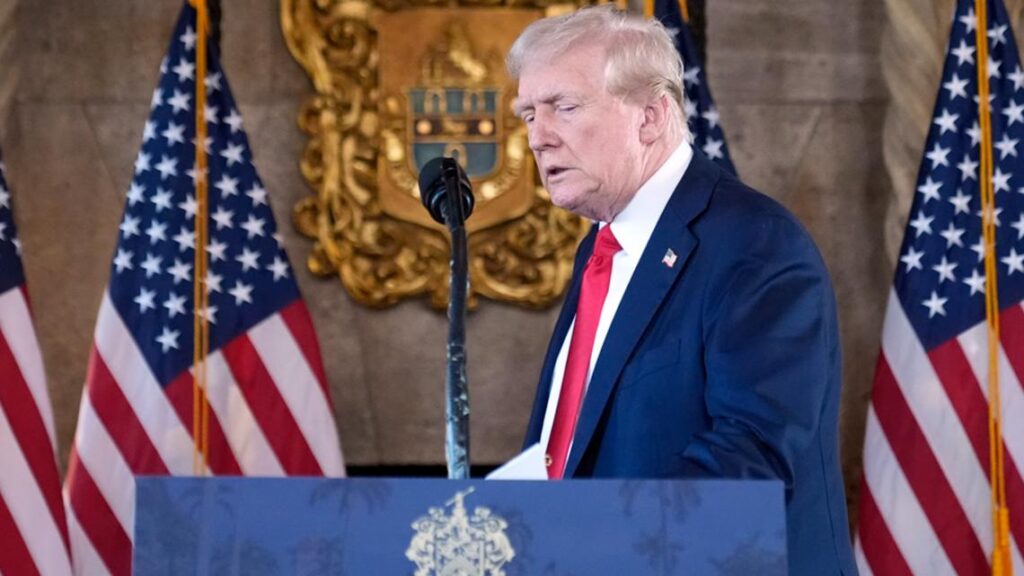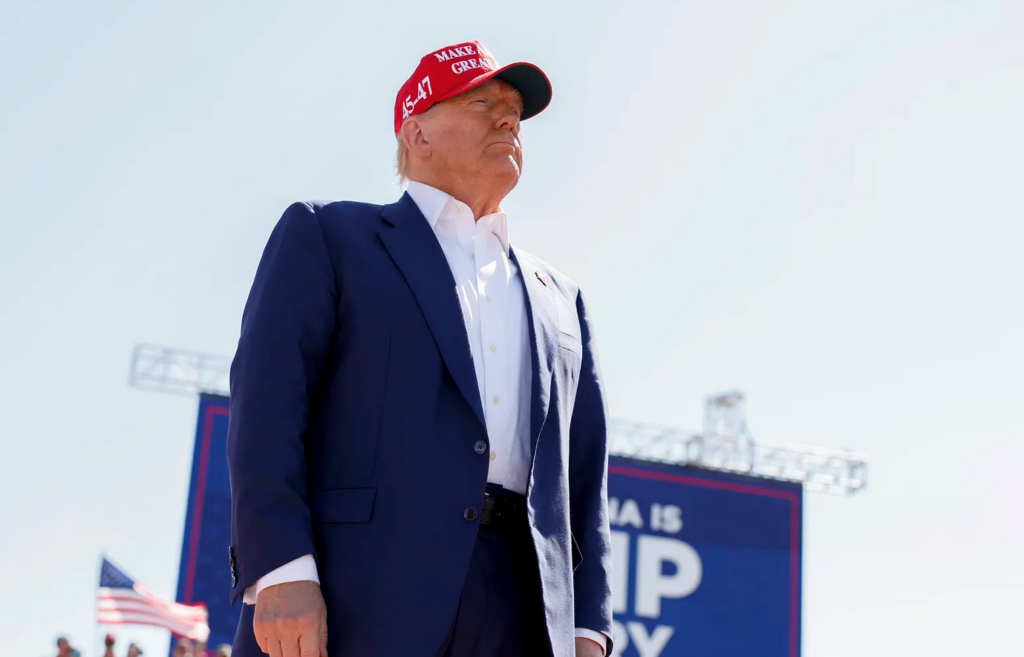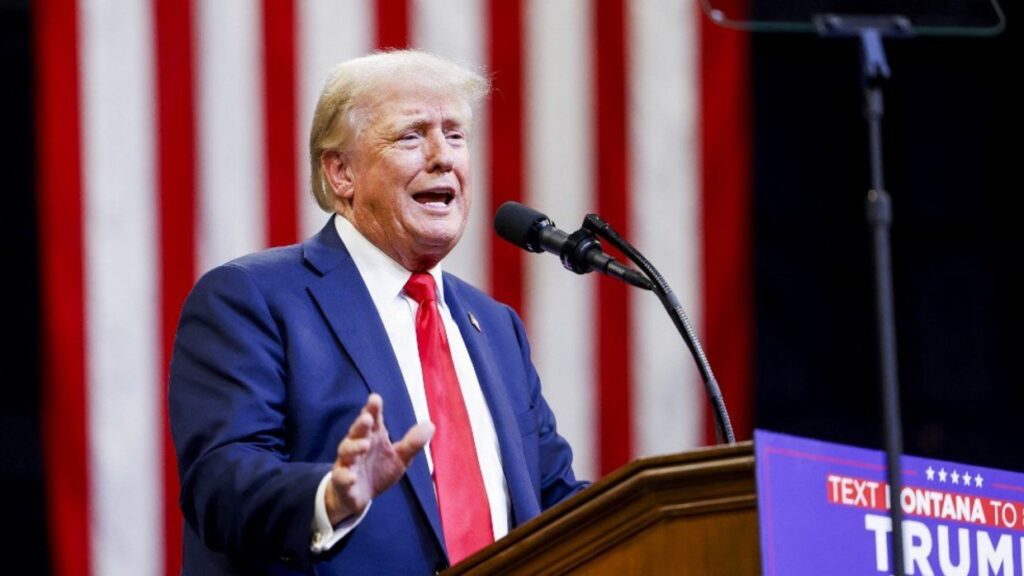(MadeinPolitics.com) Donald John Trump was born on June 14, 1946, in Queens, New York City, into a wealthy family. His father, Fred Trump, was a successful real estate developer who played a major role in shaping Donald’s early business ambitions. Growing up, Donald attended the New York Military Academy, where he exhibited leadership qualities but also developed a reputation for being headstrong and driven.
Early Life and Education
Trump’s early education took place at the prestigious Kew-Forest School in Queens, but he was later transferred to the New York Military Academy at age 13. It was here that Trump began to develop the discipline and competitive spirit that would define his career. After graduating in 1964, Trump attended Fordham University for two years before transferring to the Wharton School of the University of Pennsylvania, where he earned a degree in economics in 1968.
Entering the Real Estate Business
After college, Donald Trump joined his father’s real estate business, which focused on middle-class rental housing in Brooklyn, Queens, and Staten Island. In 1971, Trump took control of the company, renaming it The Trump Organization and shifting its focus to Manhattan, where he began building large, luxurious properties. One of his first major successes was the renovation of the Commodore Hotel into the Grand Hyatt in 1980, followed by the construction of the now-iconic Trump Tower on Fifth Avenue, which opened in 1983.
During the 1980s, Trump expanded his real estate empire to include skyscrapers, hotels, casinos, and golf courses, not just in New York but globally. However, his high-profile business ventures and lavish lifestyle also attracted significant attention. His successes were matched by several high-profile failures, including multiple casino bankruptcies in Atlantic City.
Reality TV Stardom: “The Apprentice”
In 2004, Trump’s public persona grew even more prominent when he became the star and executive producer of the NBC reality show, The Apprentice. The show’s success cemented his image as a tough but fair businessman, and his catchphrase “You’re fired!” became iconic in American pop culture. Trump’s role on The Apprentice further bolstered his brand, which became synonymous with luxury and success.

Political Aspirations and Entry into Politics
Trump had flirted with politics as early as the late 1980s and 1990s, considering presidential runs and advocating for various issues. He registered with different political parties over the years, including the Republican, Democratic, and Reform parties, reflecting his shifting political views.
However, it wasn’t until June 16, 2015, that Trump officially launched his presidential campaign. His announcement speech, in which he famously claimed that Mexico was sending “rapists” across the border, instantly made headlines and set the tone for his populist, nationalist, and anti-establishment campaign.
2016 Presidential Campaign and Victory
Running as a Republican, Trump’s 2016 campaign was marked by his promise to “Make America Great Again,” focusing on populist themes like immigration reform, trade protectionism, and a strong anti-globalization stance. Despite facing intense criticism from both the media and his political opponents, Trump’s campaign was highly effective in using social media, especially Twitter, to communicate directly with his base.
Trump’s unexpected victory over Democratic candidate Hillary Clinton on November 8, 2016, shocked the world. He won key battleground states like Michigan, Pennsylvania, and Wisconsin, securing a total of 304 electoral votes compared to Clinton’s 227. His victory signaled a major shift in American politics, as his outsider status and unconventional approach resonated with a large portion of the electorate who felt disillusioned with the political establishment.
Presidency (2017–2021)
Donald Trump was inaugurated as the 45th President of the United States on January 20, 2017. His administration pursued many of the populist policies he had promised during his campaign. His tenure was marked by significant deregulation, tax cuts, and a push to renegotiate trade deals, including the United States-Mexico-Canada Agreement (USMCA), which replaced NAFTA.
Trump’s presidency was also defined by its controversial immigration policies, including the attempt to build a wall along the southern border and the implementation of a travel ban on several Muslim-majority countries. His foreign policy was characterized by a “America First” doctrine, where he focused on withdrawing the U.S. from multilateral agreements like the Paris Climate Accord and the Iran Nuclear Deal, while engaging in diplomacy with North Korea and toughening his stance on China.
One of the most significant events during Trump’s presidency was his handling of the COVID-19 pandemic. Trump faced heavy criticism for his response to the pandemic, with opponents accusing him of downplaying the virus’s severity. Nonetheless, his administration spearheaded Operation Warp Speed, which contributed to the rapid development of vaccines.

2020 Presidential Election
The 2020 election saw Trump facing off against Democratic challenger Joe Biden. The election was one of the most divisive in modern U.S. history, exacerbated by the pandemic and widespread political polarization. Despite his massive rallies and continued strong support among his base, Trump lost the election to Biden, receiving 232 electoral votes to Biden’s 306.
Trump refused to concede the election, alleging widespread voter fraud, claims which were repeatedly debunked by courts, state election officials, and his own Department of Justice. His insistence that the election was “stolen” led to the storming of the U.S. Capitol on January 6, 2021, by a pro-Trump mob during the certification of the electoral votes. This unprecedented event led to Trump being impeached for the second time by the House of Representatives, although he was acquitted by the Senate.
Post-Presidency and 2024 Campaign
After leaving office on January 20, 2021, Trump continued to be a dominant figure in American politics, maintaining a strong influence over the Republican Party. His continued claims of election fraud became a central narrative within some conservative circles.
In November 2022, Trump announced that he would run for president again in the 2024 election. His campaign for 2024 seeks to capitalize on his loyal base and the slogan “Save America”, targeting key issues like the economy, border security, and the handling of international affairs by the Biden administration.
Donald Trump’s Legacy in American Politics
Donald Trump remains one of the most polarizing figures in modern American political history. To his supporters, Trump is seen as a hero who challenged the political elite, stood up to China, and put “America First.” To his critics, Trump represents a threat to democratic norms, with his presidency marked by authoritarian tendencies and a disregard for traditional political conventions.

Trending Themes in the 2024 U.S. Election and Donald Trump’s Campaign
As the 2024 presidential election approaches, several key themes and issues dominate the political landscape, particularly surrounding Donald Trump’s bid for a return to the White House. From his campaign slogans to his base of loyal supporters, Trump’s involvement in this election is set to be one of the most closely watched political events. Below are some of the trending keywords that reflect the central issues and topics shaping the election discourse:
- 2024 Presidential Election
- Donald Trump election campaign
- Trump 2024 slogans
- Save America movement
- Trump’s base
- GOP nomination
- Trump vs. Biden rematch
- Election integrity issues
- MAGA movement
- Trump’s policies 2024
Donald Trump’s journey from a real estate magnate to the 45th President of the United States, and now a candidate for the 2024 election, has left an indelible mark on American politics. His bold, often controversial approach reshaped the Republican Party and polarized the nation. As he eyes a potential return to the White House, the 2024 election will likely be another defining moment in U.S. history, filled with intense debates over his policies, leadership style, and vision for the future.
Whether Trump secures the GOP nomination and stages a successful comeback or not, his influence on American politics, and the broader political conversation, will continue to shape the country for years to come. His base remains energized, and the themes of nationalism, populism, and economic reform will be at the forefront of his campaign.
As the election season progresses, the eyes of the world will be on Donald Trump, and the decisions made in 2024 could alter the course of the nation. Stay tuned for updates on this pivotal moment in American history as the race for the presidency heats up.